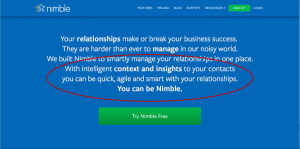
mohamed_hassan / Pixabay
Acquisitions usually happen for three reasons: revenue growth, to bring on new technology, or to capture a new audience. An experienced broker can advise you on the correct financial steps and checkpoints during your acquisition, but a company is more than their ledger. A company includes people who work together to achieve a purpose, and ensuring those elements mesh well with your existing company are vital to a successful acquisition.
Your pre-contract research should also include some soul searching for what you hope to achieve through the purchase. You should also examine how well your company cultures will mesh. At my company, TechnologyAdvice, while our advisors helped us achieve a financially viable acquisition, it was our own goals and culture that ensured a successful integration of the new business.
Define the goal of the acquisition
Companies looking for revenue growth may acquire a competitor or a similar business that currently services a different location or part of the industry. Those looking for new tech will purchase a best-of-breed company and integrate that technology with their own current processes. To capture a new audience, an enterprise company might acquire a similar product that serves small to medium businesses, thereby creating their own small to large business vertical.
Your reason for expansion by acquisition should become your end goal. If you know that your end-goal is to gain a new audience, you’re less likely to become distracted by shiny technology that sounds cool but doesn’t help you grow your customer base. When you have a defined, clear goal for the purchase, you are more likely to identify and retain employees who can help you reach that goal.
Hire to fit the company culture
You work hard for your company culture. It’s why your company has such an intensive and selective hiring process. It’s why you go through the exercises of outlining your values, purpose, and mission statements. A good company culture can build a successful and motivated team, but it doesn’t take much for a good culture to go bad.
As you’re researching businesses to purchase, consider how well the stated and lived values of the company mesh with that of your own. You can find the stated values of the company on their about or careers page, but you may find out a lot more about the company from online review sites. How is the business viewed in the marketplace? If you’re acquiring a retail or customer service-driven business, you may be able to find reviews on consumer websites like Google My Business or Yelp.
Consider doing a deep-dive into how the company treats customers and public communication. Take a look at public customer messages and replies on social media channels like Twitter and Facebook. Peruse public employee profiles and the company profile on LinkedIn. What have employees said anonymously on Glassdoor and Owler? These communications with the public will indicate how the employees live the company values and how well your teams will integrate.
What worked for TechnologyAdvice
TechnologyAdvice acquired nearly 40 web properties run by two different businesses in 2020. We had worked closely with QuinStreet B2B before we acquired the business in February. We knew a lot about the company culture through years of interactions with sales and marketing professionals at the company. Several factors aligned within TechnologyAdvice that set the stage for a successful acquisition, no matter which company we purchased:
- We have a team of seasoned and emerging leaders that were ready to quickly grow in their roles
- We recently ramped up hiring efforts to put us in a better position to grow our business quickly
- We have maintained record growth over several years
- We have proprietary technology that would revolutionize our production capacity and significantly improve outcomes for our clients
It wasn’t just luck that the team we chose from QuinStreet had a deep talent pool, decades of experience, and a willingness to grow and learn with us. We planned it that way.
Our company culture was strong before the acquisition, but we wanted it to thrive during the transition and after the ink was dry. We planned virtual events to bring the whole team together, despite the pandemic. We sought the knowledge and insight of the new employees and relied on them to help us maintain and grow the business they had nurtured for years.
Finally, we relied on our company values to guide us when times got hard. We value each other, make calculated decisions, crave knowledge, challenge mediocrity, and communicate transparently. These values motivate us to listen, to analyze, and to make decisions in the best interest of our customers, our community, and our employees.
Business & Finance Articles on Business 2 Community
(119)
Report Post





